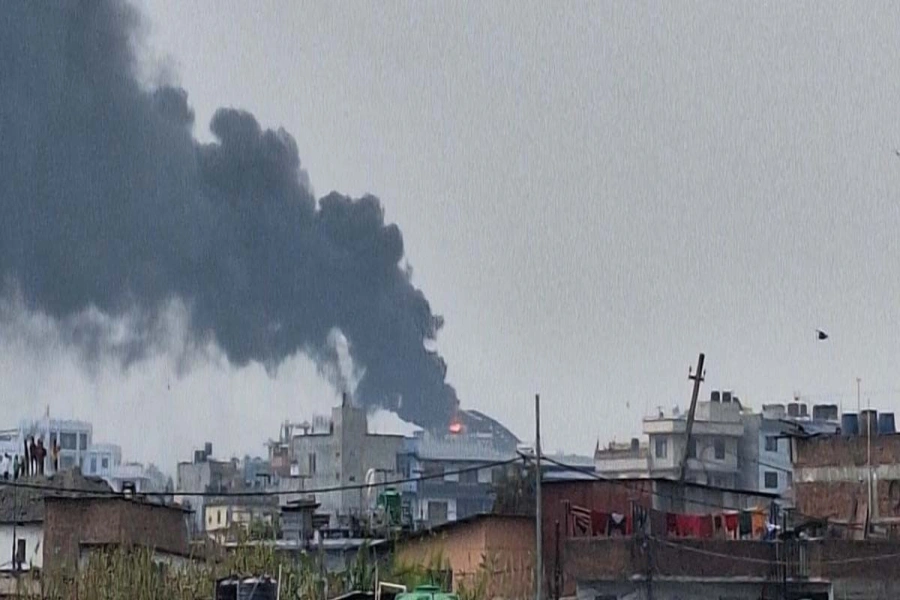KATHMANDU, April 12: Commissioners of the Commission of Investigation on Enforced Disappeared Persons (CIEDP) retired on Thursday without accomplishing the tasks given to them — investigate conflict-era cases, establish the truth, recommend reparation and suggest ways to prevent conflict in the future.
Before announcing their retirement, all commissioners of the CIEDP — the body entrusted with the responsibility of investigating cases of disappeared persons and ensuring justice to the victims — said their work was largely affected due to the non-cooperation from the government.
At a press conference organized to announce their retirement, they blamed the government for not clearing the legal hurdles mainly the reparation policy for the victims, release of adequate funds to conduct investigations and promulgation of laws required to criminalize those involved in the disappearance of civilians during the decade-long Maoist insurgency.
“Despite widespread challenges, we investigated 80 percent of the total complaints. But our efforts to recommend reparation for the victims and deliver justice went in vain due to the non-cooperation from the government,” said Lokendra Mallik, chairperson of CIEDP.
Who did this?

Mallik said their plan to provide reparation to the victims, distribute ID cards to them and suggest ways to prevent future conflicts was obstructed due to the lack of working period. “Shortly after we were appointed to the commission, we drafted a reparation policy and provided it to the government,” said Mallik, “But the government hasn’t endorsed the policy till date.”
CIEDP commissioners said reparation to victims was halted due to the lack of legal provisions. Their plan to recommend action against the perpetrators went futile after the government delayed promulgating the law to criminalize those involved in disappearing civilians.
Of the total 3,197 complaints filed at the CIEDP, 219 were put on hold after they were found not related to the conflict. Similarly, 414 complaints were referred to the Truth and Reconciliation Commission (TRC), saying they fell under the TRC’s jurisdiction. Of these 414 complaints, 137 were again sent to the CIEDP for further investigation.
The remaining 2,506 complaints were deemed suitable for detailed investigation. Of them, CIEDP completed the detailed investigation into 2,008 cases before wrapping up its works.
Further, the CIEDP has already collected ante-mortem data and filled forms for reparation as wished by the conflict victims. “We could have completed all the tasks given to us if six more months had been given to us. We requested for that. But the government didn’t heed our plea,” said CIEDP Spokesperson Bishnu Pathak, “It will be difficult to complete the remaining tasks for the new commissioners as well if the legal and other administrative hurdles are not cleared.”
Established in February 2015, both transitional justice (TJ) bodies - CIEDP and TRC - were mandated to complete investigations into conflict-era cases and ensure justice to the victims within two years. The government extended their deadlines by two more years to complete the given tasks. As many as 61,000 cases have been filed at the TRC. Of them, TRC has concluded preliminary investigations into about 3,000 cases.
Most recently, the government extended the term of both TJ bodies by a year in the last week of February. The term of the commissioners of both commissions, however, was extended just for three months, asking them to wrap up their progress and submit their reports to the government.
Just two days before the expiry of their term extended by three months, CIEDP members invited journalists at the commission to inform about the progress made by the commission. TRC members are announcing their retirement on Friday.
Dismayed by the progress made by the commissions, the government wants to reconstitute the commissions. As part of reforming the commissions, the government has formed a committee to recommend new commissioners for the TJ bodies. The committee is expected to recommend new members for the commissions within a couple of weeks.
Officials at both commissions have been asked to seal all the documents safely and protect them until the new commissioners are appointed.





-1200x560-1772467693.webp)




























